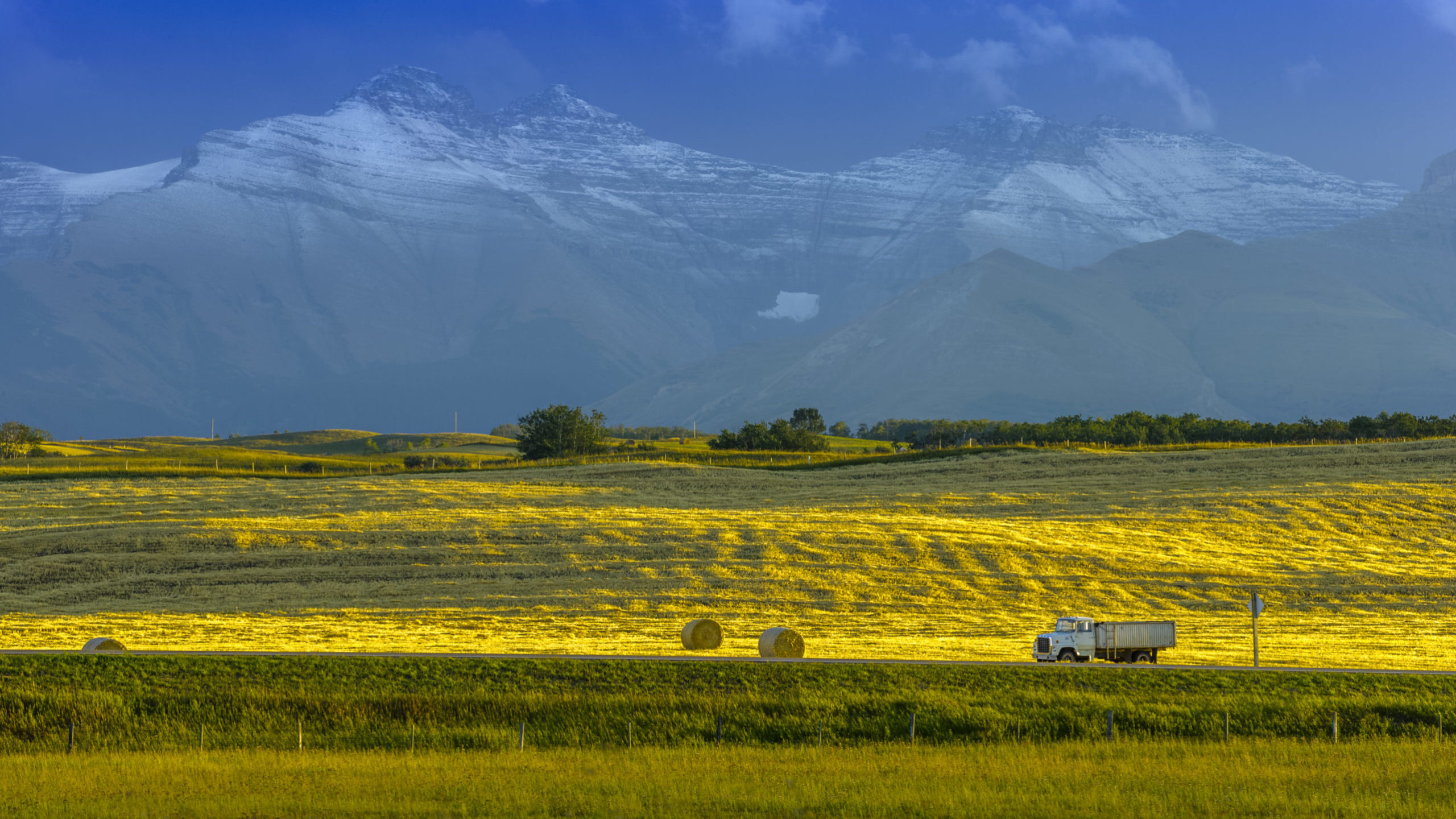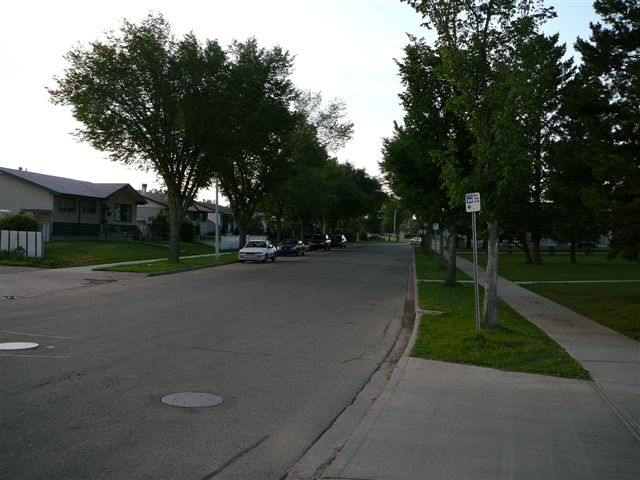Contact Us
Table of Contents
The Ultimate Guide to Rural Alberta Real Estate
Rural Alberta, with its sweeping prairies, scenic foothills, and charming small towns, offers a distinct real estate market. This ultimate guide covers essential aspects of buying and investing in rural Alberta real estate, from market trends to property types and strategic advice.
Introduction to Rural Alberta Real Estate
What Defines Rural Alberta?
Rural Alberta encompasses the expansive areas outside major urban centers like Calgary and Edmonton. It is marked by:
- Diverse Landscapes: From agricultural plains and rolling hills to forested areas and mountainous terrain.
- Smaller Communities: Small towns and villages with unique local flavors and a tight-knit community feel.
- Economic Foundations: Dominated by agriculture, energy sectors, and tourism, impacting the real estate market.
Why Invest in Rural Alberta?
Rural Alberta real estate appeals for several reasons:
- Affordability: Generally lower property prices compared to urban areas, offering greater value.
- Lifestyle Benefits: Peaceful surroundings, expansive space, and a slower pace of life.
- Investment Potential: Increasing remote work and lifestyle changes are driving up demand for rural properties.
Market Trends in Rural Alberta Real Estate
Current Trends
Recent trends in rural Alberta real estate include:
- Growing Demand: Remote work and lifestyle changes are increasing interest in rural properties.
- Price Dynamics: Prices are rising in some areas due to high demand, while others remain affordable.
- Infrastructure Development: Enhancements in infrastructure are making rural areas more accessible and attractive.
Economic Influences
Economic factors affecting the rural real estate market include:
- Agricultural Sector: Fluctuations in crop prices and farming practices impact farmland values.
- Oil and Gas: Energy sector fluctuations can influence local economies and property values.
- Tourism: Popular recreational and natural areas can drive up property values.
Future Outlook
The future for rural Alberta real estate is promising, with expected trends including:
- Sustained Interest: The shift towards remote work and a preference for spacious living are likely to maintain demand.
- Continued Development: Ongoing improvements in infrastructure and community amenities will enhance property attractiveness.
Types of Rural Properties
Rural Alberta offers a range of property types, each with distinct features:
Farmland
Farmland is essential to rural Alberta, appealing to agriculturalists and investors.
-
Types of Farmland:
- Crop Land: For growing grains, vegetables, and other crops.
- Pasture Land: Ideal for livestock grazing.
- Mixed-Use Farms: Combining crop production with livestock.
-
Key Considerations:
- Soil Quality: Impacts productivity; soil tests are crucial.
- Water Rights: Essential for irrigation and livestock; verify availability.
- Zoning Laws: Ensure compliance with land use regulations.
Ranches
Ranches are large properties primarily used for livestock.
-
Features:
- Extensive Land: For grazing and livestock management.
- Facilities: Includes barns, fencing, and water systems.
-
Considerations:
- Land Management: Assess capacity for grazing and maintenance needs.
- Market Access: Proximity to markets for selling livestock and products.
Recreational Properties
Recreational properties cater to those seeking vacation homes or retreat spaces.
-
Types:
- Cabins: Located near lakes or forests, ideal for getaways.
- Vacation Homes: Larger, suitable for seasonal stays.
- Lodges: For group activities and recreation.
-
Features:
- Attractions: Proximity to lakes, rivers, or ski resorts is desirable.
- Seasonal Use: Evaluate suitability for year-round or seasonal use.
Country Homes
Country homes offer a permanent rural residence.
-
Characteristics:
- Spacious Homes: Larger living spaces and extensive lots.
- Features: Gardens, outbuildings, and additional land.
-
Considerations:
- Proximity to Services: Assess distance to essential services.
- Utilities: Ensure availability of water, sewage, and internet.
Investment Tips for Rural Alberta Real Estate
Investing in rural Alberta real estate requires careful planning:
Conducting Research
- Market Analysis: Study property values and market trends in your area of interest.
- Local Regulations: Understand zoning laws and property taxes.
Evaluating Property Potential
- Land Features: Assess natural features like soil quality and water availability.
- Development Opportunities: Look for properties with potential for future development.
Financing and Budgeting
- Mortgage Options: Explore rural property-specific financing options.
- Budget Planning: Include all costs, such as purchase price, maintenance, and taxes.
- Grants and Incentives: Research available financial aids or subsidies.
Management and Maintenance
- Maintenance Needs: Plan for regular upkeep and seasonal maintenance.
- Local Contacts: Build relationships with local service providers and experts.
The Buying Process
Finding the Right Property
- Engage Real Estate Agents: Work with agents who specialize in rural properties.
- Use Online Listings: Search online platforms and local listings for potential properties.
Conducting Inspections
- Property Inspection: Hire professionals to evaluate the condition of buildings and land.
- Environmental Assessment: Consider assessments for agricultural or natural features.
Understanding Local Regulations
- Zoning and Land Use: Ensure the property complies with local regulations.
- Property Taxes: Research tax implications and exemptions.
Closing the Deal
- Contract Review: Work with a real estate lawyer to review and finalize the purchase agreement.
- Final Steps: Complete paperwork, arrange financing, and ensure a smooth transaction.
Selling Rural Alberta Real Estate
Preparing the Property
- Repairs and Maintenance: Address issues and improve property condition.
- Staging: Present the property in its best light to attract buyers.
Marketing Strategies
- Online Listings: Utilize high-quality photos and detailed descriptions.
- Local Advertising: Advertise in local newspapers and community boards.
- Networking: Leverage local connections and real estate contacts.
Working with Real Estate Agents
- Choose an Experienced Agent: Select an agent with expertise in rural real estate.
- Pricing Strategy: Set a competitive price based on market data and trends.
Challenges and Considerations
Access to Services
- Service Accessibility: Consider proximity to essential services.
- Utilities: Ensure availability and reliability of utilities.
Seasonal Variations
- Weather Impact: Plan for seasonal weather effects on property use and maintenance.
- Maintenance Planning: Address seasonal maintenance needs.
Land Use Restrictions
- Zoning Laws: Be aware of local zoning and land use regulations.
- Environmental Regulations: Consider any restrictions impacting agricultural or recreational activities.
Future Outlook
Potential Developments
- Infrastructure Projects: Stay informed about planned developments and their impact on property values.
- Community Growth: Monitor trends in community expansion and economic development.
Emerging Investment Opportunities
- Sustainable Agriculture: Explore opportunities in organic and sustainable farming.
- Eco-Tourism: Invest in properties catering to eco-tourism and recreational activities.
FAQ
What is considered “rural” in Alberta?
Rural Alberta refers to areas outside major urban centers like Calgary and Edmonton. This includes small towns, villages, and expansive open spaces characterized by lower population density and a more relaxed lifestyle.
What types of properties are available in rural Alberta?
Rural Alberta offers a variety of properties, including:
- Farmland: For crop production or livestock grazing.
- Ranches: Large properties primarily for raising livestock.
- Recreational Properties: Cabins, vacation homes, and lodges.
- Country Homes: Spacious residences with large lots.
How do property prices in rural Alberta compare to urban areas?
Generally, property prices in rural Alberta are lower than in urban areas. This is due to the larger amount of land available and the lower demand compared to cities, although prices can vary significantly based on location and property type.
What should I consider before buying rural property?
Before purchasing rural property, consider:
- Property Type: Ensure it meets your needs (e.g., farmland, ranch, recreational).
- Access to Services: Check proximity to essential services like healthcare, schools, and shopping.
- Utilities: Verify the availability of water, sewage, and internet.
- Land Quality: Assess soil quality, water rights, and zoning laws.
- Maintenance Needs: Consider the upkeep requirements, especially for larger properties.
How can I find the right real estate agent for rural properties?
Look for agents who specialize in rural real estate and have experience in the specific type of property you are interested in. They should have a good understanding of the local market and regulations.
What financing options are available for rural properties?
Financing options for rural properties include traditional mortgages, agricultural loans, and specialized rural property loans. Some lenders offer products specifically for rural or agricultural real estate.
Are there any government grants or incentives for buying rural property?
There may be grants or incentives available for agricultural development, conservation projects, or rural community improvements. Research local and provincial programs or consult with a real estate agent for information on available financial aids.
What are common challenges in buying rural property?
Challenges include:
- Access to Services: Limited availability of essential services can impact property value and livability.
- Maintenance: Larger properties may require more upkeep and management.
- Weather and Seasonal Issues: Weather conditions can affect property usability and maintenance needs.
- Zoning and Land Use Restrictions: Ensure the property complies with local regulations.
How can I prepare my rural property for sale?
To prepare a rural property for sale:
- Address Repairs: Fix any maintenance issues and improve property condition.
- Enhance Curb Appeal: Improve landscaping and exterior features.
- Stage the Property: Present the property attractively to potential buyers.
- Market Effectively: Use online listings, local advertising, and networking to reach buyers.
What is the future outlook for rural real estate in Alberta?
The future of rural real estate in Alberta looks promising due to increased interest in spacious living, remote work trends, and ongoing infrastructure developments. Property values may rise as demand for rural lifestyles continues to grow.
Conclusion
Rural Alberta offers a diverse and attractive real estate market for those seeking space, tranquility, and a connection with nature. By understanding market trends, property types, and investment strategies, you can make informed decisions and achieve success in the rural real estate market. Whether you’re interested in farmland, a ranch, a recreational property, or a country home, rural Alberta has something to offer for every buyer and investor.
Call me anytime with any questions at 780-278-4847.



